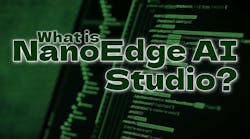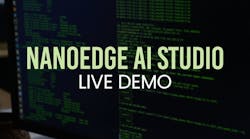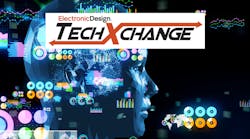Special Report: AI and Product Lifecycles — It's a Matter of Trust
It’s no longer rumors or rumblings of its use—artificial intelligence (AI) is overwhelming in every aspect of our digital lives, work or otherwise. Most newer consumer products tout AI. And a majority of companies already use it in all aspects of operation, or they’re at least testing it out. It’s impacting our engineering life.
Members can download this special report or read the articles online.
A Quick Overview
Let me give you an example from an NVIDIA GPU Summit experience I had.
I can’t say who this company is, but one small software design group’s owner demands that all of their developers use AI to augment their work. This company’s star senior software developer refused to use it, saying they could write better code. Since this person was their “ace,” they let that mandate slide.
The owner said over time that AI was boosting the overall accuracy and output of their junior devs to just a few rungs below that of the “star ace.” Overall, the output wasn’t as good as the star ace, but the volume was sizable. The owner then demanded the star ace to use AI, to no avail. The owner fired the star ace on the spot.
I can’t say that AI use might be the make or break for anyone’s career. But I can say that AI will be introduced somewhere in your design process or product operation at some point by someone. It’s inevitable.
Addressing these topics, our AI Takeover Week explores what’s out there, how companies are embracing it, and its potential ramifications. We look at AI in the process of design, manufacturing, and operation of products. And we attempt to answer the question of whether it can be trusted along the product lifecycle path.
You may have a strong opinion on the matter, one way or another. I encourage you to share your thoughts on each of the pieces in the series. I want to know your thoughts!
In the meantime, take our first poll question now (below), and the second after you've had a chance to peruse all of the articles (and view the videos).
About the Author
Cabe Atwell
Technology Editor, Electronic Design
Cabe is a Technology Editor for Electronic Design.
Engineer, Machinist, Maker, Writer. A graduate Electrical Engineer actively plying his expertise in the industry and at his company, Gunhead. When not designing/building, he creates a steady torrent of projects and content in the media world. Many of his projects and articles are online at element14 & SolidSmack, industry-focused work at EETimes & EDN, and offbeat articles at Make Magazine. Currently, you can find him hosting webinars and contributing to Electronic Design and Machine Design.
Cabe is an electrical engineer, design consultant and author with 25 years’ experience. His most recent book is “Essential 555 IC: Design, Configure, and Create Clever Circuits”
Cabe writes the Engineering on Friday blog on Electronic Design.
















